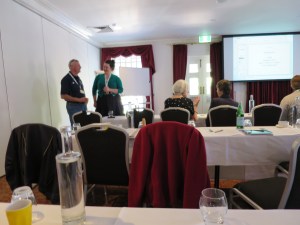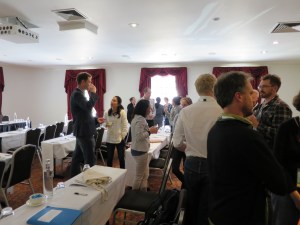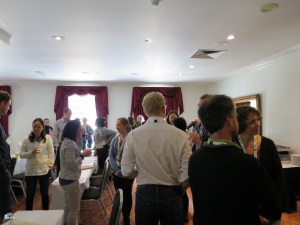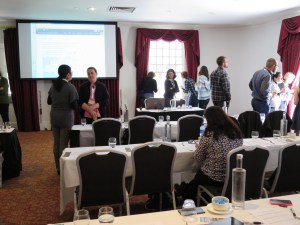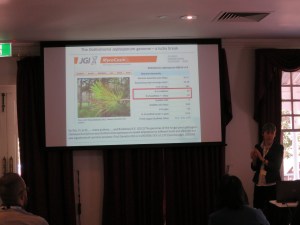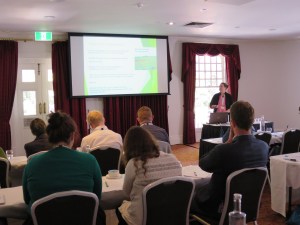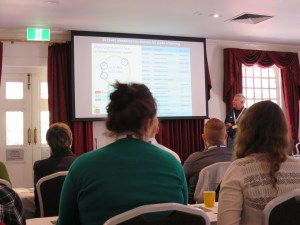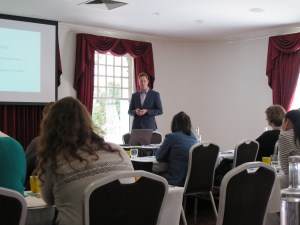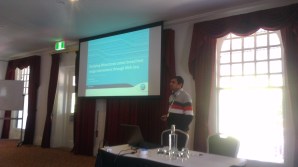This year’s pathogen bioinformatics meeting will be held as a workshop of the APPS 2019 conference in Melbourne. Please note that the workshop is held at the AgriBio building, La Trobe University. For those of you staying near the MCEC where the main conference is being held, there will be a bus departing from MCEC at 8:30am going to AgriBio. If you would like to catch this bus please contact James.Hane@curtin.edu.au or tonya.wiechel@agriculture.vic.gov.au.
Below is the program for the 2019 Pathogen Bioinformatics Meeting:
| Time Start | Time End | Title | Speaker | Length | Title |
| 10:00 | 10:30 | COFFEE | 00:30 | ||
| 10:30 | 10:35 | OPENING | 00:05 | ||
| 10:35 | 11:05 | TALK | Jana Sperschneider | 00:30 |
The chromosome-scale assembly of the flax rust fungus Melampsora lini: challenges of assembling a highly repetitive, dikaryotic fungal pathogen genome
|
| 11:05 | 11:25 | TALK | Belinda Fabian | 00:20 | Using genome-wide screening to identify genes important for bacterial colonisation of plant surfaces |
| 11:25 | 11:55 | MORNING TEA | 00:30 | ||
| 11:55 | 12:25 | TALK | Rebekah Frampton | 00:30 | Genome of Bactericera cockerelli: Sequencing, assembly, and annotation |
| 12:25 | 12:45 | TALK | Chala Turo | 00:20 | Assessing Recombination from Genome Sequences of Spot and Net form Barley Pathogens |
| 12:45 | 13:45 | LUNCH | 01:00 | ||
| 13:45 | 14:05 | TALK | Lina Rozano | 00:20 | Structural prediction of ToxA-like and MAX effector proteins using threading and comparative modelling methods |
| 14:05 | 14:25 | TALK | Janneke Aylward | 00:20 | Capnodiales genomes reveal aspects of mating type evolution |
| 14:25 | 14:45 |
AFTERNOON TEA
|
00:20 | ||
| 14:45 | 15:05 | TALK | Evan John | 00:20 |
A novel method for analysis of RNAseq data guides identification of conserved promoter motifs associated with a key regulator of fungal virulence.
|
| 15:05 | 15:35 | TALK | Roberto Barrero | 00:30 | PathogenFinder – a bioinformatics tool to fast track plant viruses and viroids quarantine testing at the border |
| 15:35 | 15:40 | CLOSING | 00:05 |



